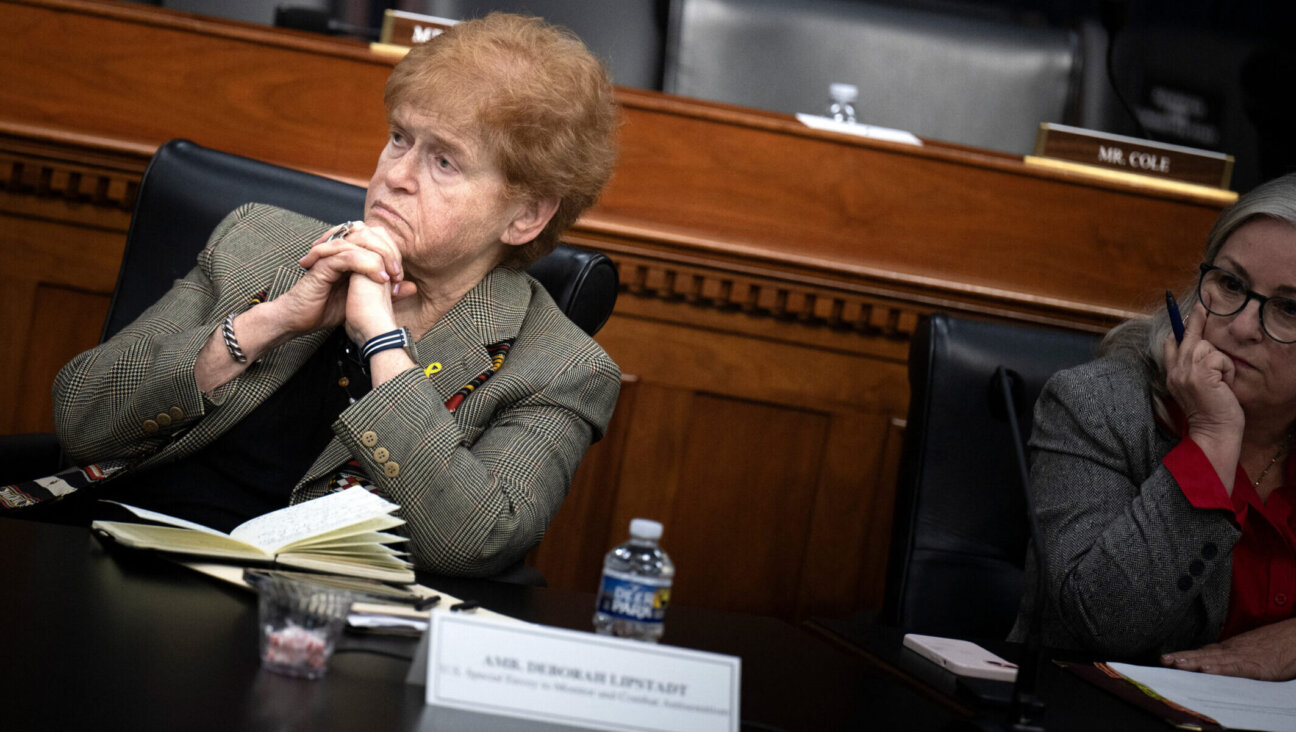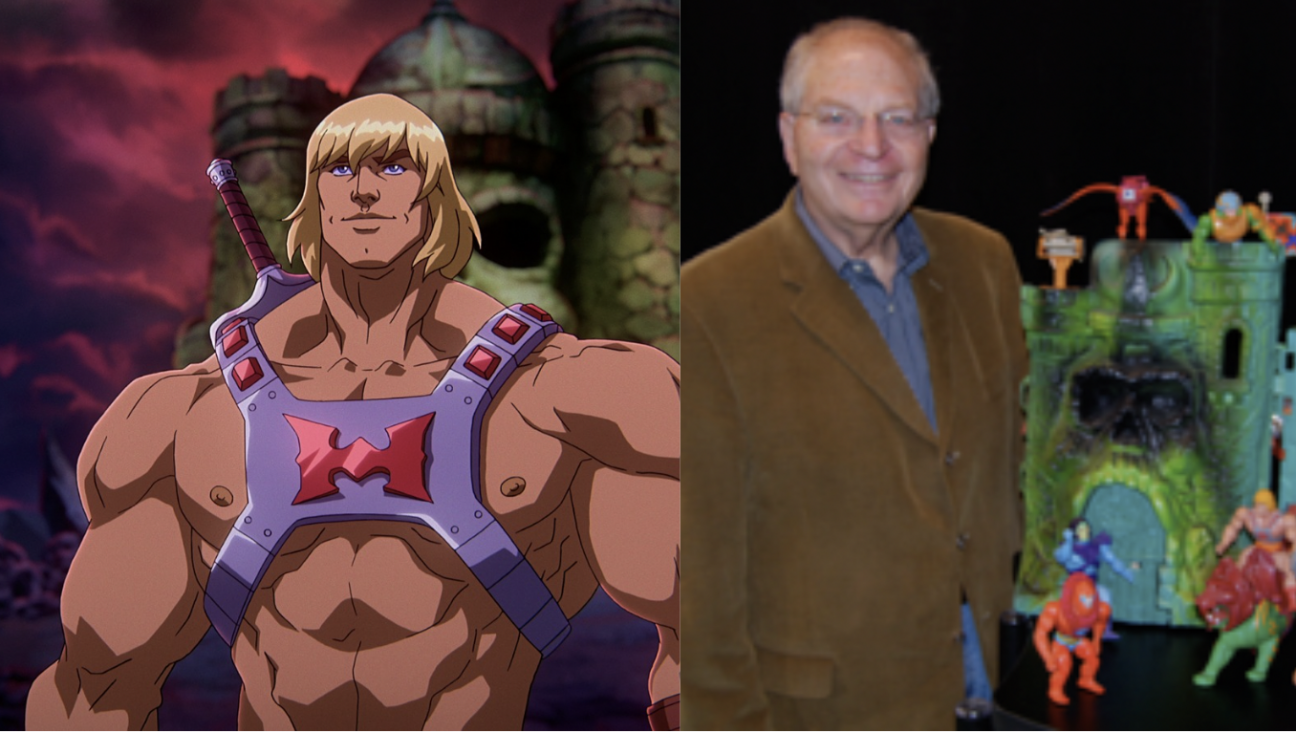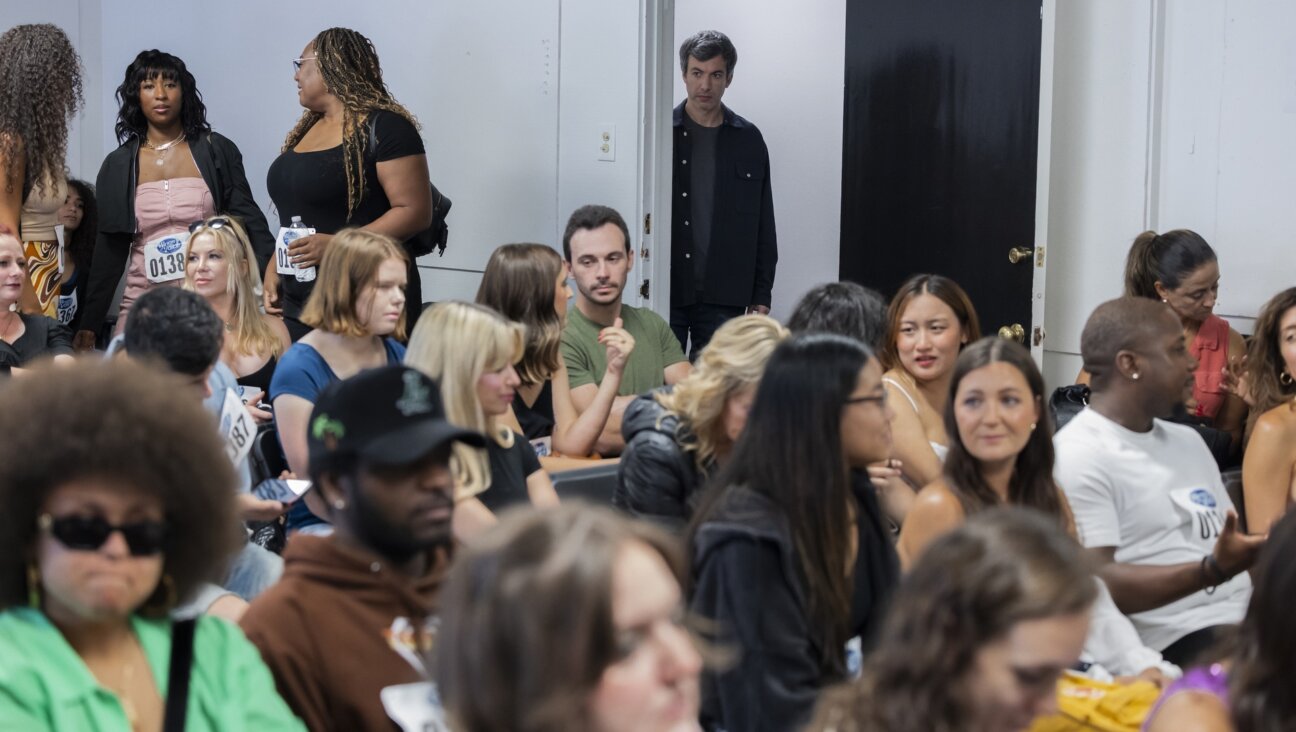You Can Now Get Your Yiddish Song Fix In ‘A Star Is Born’

A Star Is Born
This week only fans of “A Star is Born” can see a new, extended cut of the film featuring an additional song: In Yiddish.
“Was it a slow song or a fast song?” Tony-winning actor Ron Rifkin, who sings the ditty in the film as Carl, the therapist of drug addicted musician Jackson Maine (Bradley Cooper), asks me from a Lyft Share. He was unaware the extended rerelease – marketed as the “Encore” edition — was happening. “I think we shot the fast one ’Sheyn Vi di Levone,’” Rifkin said.
Rifkin, who did a concert of ghetto period Yiddish music at Joe’s Pub in New York in 2015, said director Bradley Cooper had been supportive of his “Alias” co-star and longtime friend’s efforts to usher Yiddish music back into the spotlight. Cooper invited Rifkin to sample some of his songbook in a scene where Lady Gaga’s character, Ally, visits Maine in rehab.
“[Cooper] said ‘let’s sing together’ and he didn’t know quite what to do and then in the scene with Gaga he just improvised,” Rifkin recalled, and then paraphrased the dialogue: “‘Why don’t you sing that song for her?’ And I said ‘which one, the fast or the slow one.’ My favorite would have been the slow one, but I think it was the fast one, and I sang it.”
After our phone conversation (which was kept brief because Rifkin, a courteous ride-sharer, didn’t want to be on a call when another passenger entered the Lyft) I looked up the song, a jazzy number which translates to “Beautiful as the Moon,” to make sure.
It was in fact the “slow song” that Cooper preserved. Alas, I went to see this screening as a civilian without a notebook not expecting a Jewish sequence in the added 12 minutes of the film. As a considerate movie-goer, I resisted pulling out my phone to take better notes on the song when it emerged without little preamble from the goyische romance. In short I was kicking myself.
I rang Rifkin back and asked him what the slow number was. I remembered the word “Kleine.”
“I’m going to need more than that,” Rifkin replied, noting his surprise that Cooper went with the slower song.
While neither subject nor interviewer could recall the tune in question, this wrinkle speaks to the need for Yiddish music’s preservation. Put another way, as Jackson Maine says, following Carl’s Yiddish aria:
“That’s forgotten music. He’s bringing it back.”
[
PJ Grisar is the Forward’s culture intern. He can be reached at [email protected].
The Forward is free to read, but it isn’t free to produce

I hope you appreciated this article. Before you go, I’d like to ask you to please support the Forward.
Now more than ever, American Jews need independent news they can trust, with reporting driven by truth, not ideology. We serve you, not any ideological agenda.
At a time when other newsrooms are closing or cutting back, the Forward has removed its paywall and invested additional resources to report on the ground from Israel and around the U.S. on the impact of the war, rising antisemitism and polarized discourse.
This is a great time to support independent Jewish journalism you rely on. Make a gift today!
— Rachel Fishman Feddersen, Publisher and CEO
Support our mission to tell the Jewish story fully and fairly.
Most Popular
- 1

Opinion The dangerous Nazi legend behind Trump’s ruthless grab for power
- 2

Opinion A Holocaust perpetrator was just celebrated on US soil. I think I know why no one objected.
- 3

Culture Did this Jewish literary titan have the right idea about Harry Potter and J.K. Rowling after all?
- 4

Opinion I first met Netanyahu in 1988. Here’s how he became the most destructive leader in Israel’s history.
In Case You Missed It
-

Culture Trump wants to honor Hannah Arendt in a ‘Garden of American Heroes.’ Is this a joke?
-

Opinion Gaza and Trump have left the Jewish community at war with itself — and me with a bad case of alienation
-

Fast Forward Trump administration restores student visas, but impact on pro-Palestinian protesters is unclear
-

Fast Forward Deborah Lipstadt says Trump’s campus antisemitism crackdown has ‘gone way too far’
-
Shop the Forward Store
100% of profits support our journalism
Republish This Story
Please read before republishing
We’re happy to make this story available to republish for free, unless it originated with JTA, Haaretz or another publication (as indicated on the article) and as long as you follow our guidelines.
You must comply with the following:
- Credit the Forward
- Retain our pixel
- Preserve our canonical link in Google search
- Add a noindex tag in Google search
See our full guidelines for more information, and this guide for detail about canonical URLs.
To republish, copy the HTML by clicking on the yellow button to the right; it includes our tracking pixel, all paragraph styles and hyperlinks, the author byline and credit to the Forward. It does not include images; to avoid copyright violations, you must add them manually, following our guidelines. Please email us at [email protected], subject line “republish,” with any questions or to let us know what stories you’re picking up.
















